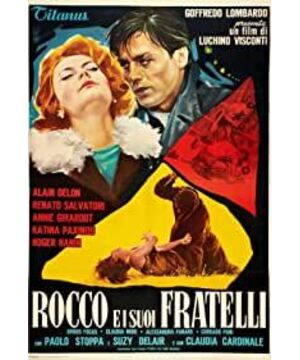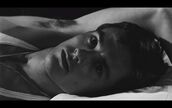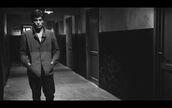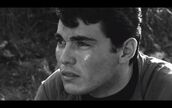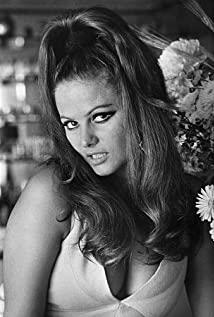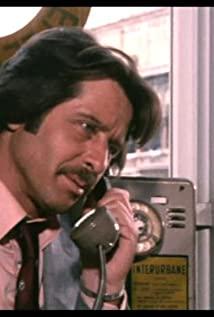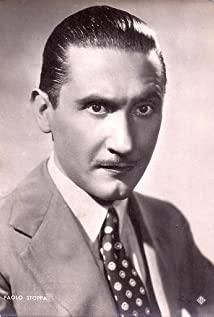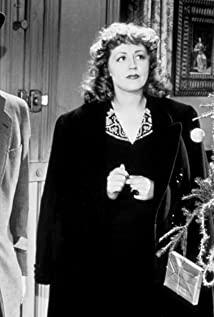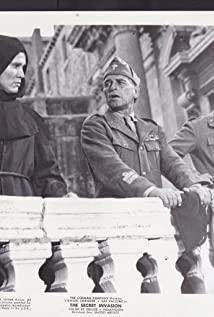1. The film structured the different chapters of the story in the mutual relationship of the two brothers, the structure of a soul's sublimation and a soul's degeneration process.
2. In the film, among the five brothers, four of whom are adults, the subtle collisions, unions and scattered reflections caused by their differences in personalities form a variation of the entire family story.
"Roco Brothers" is a film in 1960, which was shortlisted for the main competition unit of the Venice Film Festival that year, and finally won the jury award.
Among the work sequence of the legendary director Visconti, "The Rocco Brothers" is a very important one. Of course, his later films that show the aristocratic life and the corruption of the aristocratic life seem to be more representative of his personal style and art. Achievement.
This film was specifically chosen because the director Visconti was the name of Italian neorealism. He first proposed this term in 1942. Since then, this term has become the name of an era, an aesthetic revolution, and also A brand new beginning in the era of film history. On the other hand, this work is also an important work of Italian neo-realism, and it is the epilogue or echoic work of the later period of the Italian neo-realism movement. And another point of my personal focus is that this work reminds me of today’s Chinese society and China’s reality, of the ongoing migrant workers entering the city that have lasted for 20 years and how they are digested in the city. Urbanization process.
The film is very exciting, accurate and delicately showing how a family from a rural village in southern Italy finally melted into the metropolis of northern Italy. It is the process of resettling people in the process of urbanization or modernization, and it is also the process of a theme called "collapse" that Visconti loves-the final disintegration of the traditional Italian family that revolves around a strong mother.
Visconti has always wanted to make a story with multiple brothers. He said that the five brothers are the best because the five brothers are like the five fingers of a hand. He also turned this sentence into the dialogue of the mother in the play: this is me One hand, my five sons are five fingers. In the mother's yearning, it is a hand made into a fist, a hand that strikes and overcomes life and society. But the process of the film shows that the fingers are broken one by one, leaving the body one by one, and leaving the family one by one.
I like the first part of the film the most. A family in the countryside arrives at the train station. At the train station, because of the panic of finding no one, they look for it, thinking that the son will come to pick him up but the son did not arrive. When I rushed to my son, I found that the son who was still in mourning was holding his own engagement ceremony. After the initial happiness, various problems broke out immediately. The mother said how can you get engaged? You should support the family. The fiancee’s family immediately thought this. It is the arrival of a huge burden. This is not a night of gatherings, but a night of walking out on the cold street again.
Next, the family lives in the basement, a slum of various forms in the city. There are arranging beds in the room. The brothers live together in the same room, intimate but poor.
The most exciting scene in the film, and one that is constantly quoted in film history and film textbooks, is the brothers sweeping the snow. In the early morning, everyone found that the heavy snow in the north was falling. The happiness of the brothers. This happiness is not the first time that children from the south have seen it. The happiness of Xuexue is the ecstasy that everyone has work today, which is close to the moment of running and telling the news and the good news. Then the film shows how the mother wakes up each child and how to give them breakfast. At this time, the long-shot panning shots unique to Italian neorealism, the children are holding hot soup and are hot, sweating with a sense of happiness and happiness. With a sense of eagerness, the brothers walked out the door to meet their friends during the long shot.
A Blizzard day is a working day, and the mother can kindly send them farewell, saying that if you can't get the money back today, don't come in, because today is a god-given opportunity for work. In connection with "Rome 11 O'clock" and "Bicycle Stealer", everyone will understand what a moment it was, even though this time has reached 1959 or 1960, the economic situation in Italy has begun to recover and improve.
Visconti is a legendary director in the history of film. Visconti's own legend makes him not only in the history of film, but also an important figure in the history of culture and thought in the 20th century. He was born in a family married by big aristocrats and big bourgeois, from the top of society, but as a betrayer of his own class in the 20th century who was not an exception, he fully believed and accepted Marxism and followed the leader of the Italian Communist Party at that time. Later, Gramsci, an important thinker, not only identified with the bottom, but also devoted himself to the anti-fascist movement and the anti-fascist war. As a result, he was arrested by fascists and was imprisoned. After the war, he claimed to be a Marxist on various occasions (although the surrealist painter Dali ridiculed him as a Marxist who was always immersed in luxury goods), he was spiritually identified with the society in suffering, in suffering People, he faces this kind of crowd, and his earliest films are all about social suffering, such as "The Earth Is Fluctuating" and "The Little Beauty". "The Little Beauty" is often a film on the same topic as "The Bike Stealer", and his most successful film in the sense of neo-realism is "Roco Brothers".
Before "Brother Roco", Visconti had paid attention to the entire post-war reconstruction process that swept across Italy, as well as the modernization process of Italy. Above the oppression of the tale, it is the dialogue of the second child Simon in the story: "In our hometown we are cumbersome animals. We have no way out except to work like animals and die like animals." This is a history that did not appear in the film, and it is also the most important story in the film. Why do people leave their homes, leave the place where their lives and souls belong, and enter the strange big cities with olive trees.
The other side of the legend of Visconti is that he has always been a genius. He is a genius who can be met but not sought in the history of human civilization. He appeared as a professional musical genius when he was a teenager. In the upper class of Italy, he was another director who was deeply influenced and edified by German classical philosophy. His film career began when he roamed the art capital of the time-Paris, when he was in "The Great Disillusionment". "The director of "Jean Renoir's deputy.
This is a very interesting transmission among European artists and European art movements. Visconti started his film career as an associate director of Jean Renoir. He did not choose music or philosophy or poetry or literature. He chose film as his life's career to show his inner world, his artistic soul and Italian society in his eyes.
The pursuit of realism in French movies has to some extent driven or triggered Italian neo-realism, to "Exhaustion" and Jean Godard, Italian neo-realism has directly driven and triggered a new wave of French movies. This is a flow of spirit, a river of spirit, which travels throughout Europe.
Visconti was a homosexual who could not speak clearly and could never come out of the closet in his time, so his guilt and repressed desire became another important source of his films. In today’s parlance, In the film, you can see a lot of "overflowing emotions" moments. There may be some subconscious desire motivation behind his choice of brother's story.
The film can be regarded as a film with a fictional narrative. It is as leisurely as a novel, and has a rather exquisite and exquisite structure like a novel. The movie also has fictional chapters. Each chapter is named after the brothers, and the order of the chapters is sorted by the brothers’ ranking: the first chapter is the brother Vincenzo, the second chapter is the second Simon, and the third chapter is the story. The protagonist Roco, the fourth chapter is Siro, and four chapters of the story are named after the four brothers. The last shot of the film, the long-lens shooting of a new part of the city that has just been completed and has not yet been opened, new paved roads, new buildings, rough, rush, and pale. On such a road, the little brother Luca drifts away. , To the depth of field, perhaps to the future.
This is a very clear and very prominent feature of this film. It is about the process of a family from village to city, about the process of modernization, about the lowest level of society in the process of modernization, their dreams, their pursuit, their success and their dedication. The heavy price we cannot afford.
The story unfolds in a novel structure, and the real protagonist in the film is the person who inscribes the title-Roco. Today, Roco seems a bit too sacred. He is the saint in the story and he is also Visconti’s best. Love.
I remember when I saw this movie in the Film Archive for the first time, I was really amazed by the actor of Roco, Alan Delong. Before that, "Zorro" in his prime was sweeping all over China. The audience is familiar with the middle-aged Alan Delon, and this movie shows me the young Alan Delon who has such clear eyes.
Roco is the core image and the first protagonist in the film. The director placed him in the position of a structural savior, protector, keeper, and perseverer—a saint. He tried to protect his family, tried to protect the traditions in the family, and tried to transcend materialistic alienation and The indifferent city maintains the warmth and enthusiasm of the family, so he constantly makes sacrifices for his brother.
The other protagonist in the story is the second child Simon. Today, it seems that Simon seems to be a fascinating image that we are more likely to identify-he is just full of desires, he is just too easy to be tempted, he is powerful, creative, and has Mobility, but his weakness completely shattered him, he gradually fell in the corrosion of the city-in the language used to describe Visconti-one "collapsed", one "collapsed", one was corroded, The final role. It is precisely in the relationship between the two brothers that the film constructs different chapters of the story, the process of a soul's sublimation and a soul's degeneration.
The whole story is structured around "Saint" Roco and "Fallen Angel" Simon. If they are compared to the main theme of music, the two reference and corresponding images are the elder brother and the fourth brother. The eldest brother is a mediocre and selfish image. Like all people who follow the whole family into the city, he finally chooses to run his own nuclear family. He does not want to assume the responsibility for the traditional big family.
The fourth brother, Ciro, is a positive image. He entered the city and worked hard at night school to get a diploma and became a skilled worker. Then he naturally fell in love with a girl, formed his family and finally integrated into the life of the whole city. He does not refuse or evade the responsibility for the family, but he is not like Roco who almost obsessively embraces the family, and holds the family tightly together with his incompetent position and strength. Moreover, he loves his mother deeply and does not want to disappoint her.
Among the five brothers, four of whom are adults, the film forms a variation of the entire family story through the subtle collision, combination, and patchwork of their personality differences.
The film is the epilogue and echo of Italian neo-realism. It undoubtedly promotes and perfects the brand-new documentary aesthetics created by Italian neo-realism. But unlike a typical Italian neorealist film, in this film, society is no longer the focus of Visconti’s attention. He pays more attention to people’s inner world, people’s personalities, people’s spiritual choices and people. Mental dilemma. Therefore, the audience will clearly see the fall of Simon, the existence of temptation, and the evolution and persistence of Roco. The director deals with such a social tragedy more on a spiritual level.
Corresponding to these two characteristics of the film, the most prominent film visual language in the film is the successful use of continuous presentation in long shots and panoramic shots and switching between close-up and close-up shots. The most cruel scene in the film-Simon raped Nadia in front of Roco. The director demonstrated this cruel process through continuous shooting of long shots of panoramic, large, and small panoramic views. At the same time, he successfully demonstrated visually the psychological fluctuations of Roco, who was forced to be a witness on the spot, using close-up, close-up, The close-up shot presents Roco's desperate and painful expression, desperate and helpless crying face, which constitutes the conflict between such two-pole shots, and at the same time constitutes a unique visual presentation of personality.
The most powerful long shot in this large passage is a scene where the two brothers continue to fight in the city. Simon beat Roco almost unilaterally. This scene was successfully presented to the audience through the use of a large panoramic lens through several factors: like a modern deserted city, the city of Milan under reconstruction after the war, huge buildings, brand new streets, and the shaking of light and shadow at night, empty and without personality. With humanity. In such a space, the two brothers staggered after being hit hard, but there was no room for reconciliation in the whole process. This is a continuous beating and a continuous struggle. The two will almost fall to the ground in the next moment, but they are still desperately running and chasing. When this scene takes place between the hands and feet, when they have been so affectionate but still affectionate at the moment, it has a very full visual and spiritual impact.
In the story of the five brothers, the most important character interspersed is Nadia, the girl next door. She is a romantic, coquettish girl, a girl who almost lives by betraying her body and playing with it. But she is not a professional prostitute. In the many dialogues and scenes, we can realize that this is the forced choice of a girl who was forced to desperate by the harsh life after the war. She jokingly said that when she was 14 years old, she began to sell her body in exchange for a better life. Although she later denied it with a smile, saying that it was a joke, we probably know that it is absolutely true. In the story, she is the origin of all tragedies. She introduced a story of brothers fighting for women, but behind this story is a story that Visconti loves about salvation, self-improvement, and how the power of great decadence and collapse drags people into the abyss.
In the middle and later part of the story, the most impactful is the "love and killing" between Roco and Simon. But as a female audience, a feminist, what really hurts me more is how Nadia used self-destruction to achieve her expression of love for Roco, and that she has no feminine position for this. Revenge of the brotherhood.
In the same long shot, we saw the process of Simon finally killing Nadia. Simon is holding a sharp knife and inserting it into the fatal part of her body again and again. We saw Nadia's struggle. When her body stopped struggling and twitching and was still, the picture carried a huge sense of tragedy.
Before the filming of this film, Visconti once said: "In my opinion, the reconstruction of the South and the economic revival of the South do not represent the South. I always want to listen to the deepest voice from the South. It’s a humanitarian voice, it’s a civilized voice, it’s a voice in which people regain their morals and regain their moral heights." Ten years later, this kind of expectation finally appeared in "Brother Roco" from the south. In the story.
In this movie, the voice-over application is very exciting. The scene that can often be seen in the film is: a long shot followed by a certain character, and when the character leaves the screen, it remains in the visual space as a voice-over.
This is Roco’s triumph. It is a comedy theater scene where rhythmic toasts are spoken at the banquet. This happy and affectionate scene is full of blood. He has become a murderer and no one is no longer there. The appearance of Simon, the completely depraved person who can protect or save, paved the way.
In this scene, the expression of the social and psychological space formed by multiple voices is very precise. Rocco said to Ciro the toast he hadn't read to everyone. It was about hometown, about return, and about the painful homesickness that was never extravagant.
This paragraph corresponds to the last paragraph of the film, the dialogue between Ciro and his little brother Luca in the factory. Ciro said to his younger brother: "Maybe you are the only one who can return to your hometown, but how can you find your hometown, because your hometown has also changed." This is not a purely philosophical expression, that is, "You can never Stepping into the same river twice" is the ruthless destruction of the modernization process. The change of space is not only a sign of construction or progress, it is also a process of completely erasing the life memory of each of us engraved in the space. We have lost where we came from, and we have also lost our home. We have all become colorful homeless people, wanderers in the city.
It’s very interesting that Visconti, as a world-class director and a legend in the world’s film history, said in many, many interviews: "I am a loser, I am a weak person in this world, I can’t Earn a place for yourself in this society." This is also the image he gave Roco the role. Although he is a champion, he is a winner, and he is watched by thousands of people. In the last long shot scene, the little brother's hand stroked the Roco posters all over the street. Roco is so famous, but he is a loser. Because all his efforts in the end were meaningless, he could not save his brother or his family. He inevitably became a witness to the cruelest process again, witnessing the final collapse of the family.
In the memoirs of Alain Delon’s later years, he said: “I believe Visconti has a certain platonic love for me.” In the whispers of people, it is often suspected that this love is more than Plato. This is another imprint of that era. In the story, Visconti can only choose the technique of film noir: the indoor scene is a heavy black shadow cast on frosted glass. The director used this technique to imply that Simon had sold himself to that man. At the same time, he also expresses the emotions between brothers in this extremely depressive, Catholic-specific guilt way. This is an explosion of almost depressive passion, probably telling us that we are in such a sexual minority. In a period of complete rejection, homosexuality existed in secret as a crime, a crime. Although in his later years Visconti used "Break in Venice" to look directly at such "indecent love" for the first time, what such repression left in "Rock Brothers" was only a vague emotional expression.
dictionary:
1. Platonic love
It is also called spiritual love. It is a kind of spiritual love between people named after the Western philosopher Plato. It pursues spiritual communication, repels carnal desires, and is rational spiritually pure love. Platonic love is rooted in the ancient Greek tradition of rationalism and homosexual love.
2. Antonio Gramsci (1891~1937)
The leader of the Italian Communist Party, adhering to the principles of historical materialism and proletarian party spirit, put forward the creation of the slogan "national-people's literature", and the task of literary criticism on the relationship between literature and social life, writers and times, people, content and form of works, , Made an incisive exposition; at the same time, it analyzed and discussed many classical writers and important literary phenomena in the 20th century. Gramsci laid the foundation of Italian Marxist literary theory. The main works are "Notes from Prison" and "Fire and Rose".
3. Salvador Dali (Salvador Dali), a master of surrealist painting. Together with Picasso and Matisse, they are considered to be the three most representative painters of the twentieth century. The strange and dreamlike images he created not only inspire people’s imagination and induce people’s hallucinations, but also attract viewers’ visual focus with extraordinary power. They are also known for exploring subconscious images and are called " Master of Contemporary Art Magic". Representative works include "The Eternity of Memory", "The Continuation of Memory" and "The Ghost of Desire".
4. Surrealism is a modern Western literary school. It prevailed in Europe between the two world wars, and its influence was the most profound in the field of visual art. Committed to exploring the subconscious mind of human beings, advocating to break through the logical and practical view of reality, completely abandon the reality image based on logic and orderly experience memory, and integrate the concept of reality with the instinct, subconscious and dream experience to show the deep human psychology In the image world.
View more about Rocco and His Brothers reviews


